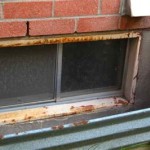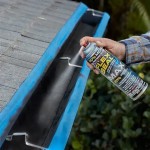Understanding Sewage Smell In Basement After Heavy Rain
A musty, foul odor in your basement after a heavy downpour can be unpleasant and concerning. This sewage smell is a common problem, especially in older homes or those with basement plumbing. Understanding the cause and addressing it promptly is crucial to prevent further damage and health risks.
Causes of Sewage Smell
Sewage smell in your basement can stem from various sources:
1. Clogged Drain: Heavy rainfall can overwhelm sewer lines, causing backups and sending sewage into your basement through floor drains or sinks. 2. Damaged Sewer Line: Cracks or breaks in the sewer line allow sewage to leak into the surrounding soil and eventually seep into your basement. 3. Sump Pump Failure: A malfunctioning sump pump can fail to drain excess water from your basement, leading to flooding and sewage backups. 4. Poor Ventilation: Inadequate ventilation in your basement allows moisture and odors to accumulate, creating a breeding ground for bacteria and mold.Health Risks
Sewage smell in your basement poses potential health risks, including:
1. Respiratory Problems: The gases released by sewage, such as hydrogen sulfide and methane, can irritate the airways and cause respiratory issues. 2. Skin Allergies: Contact with sewage can trigger skin reactions, such as rashes or irritation. 3. Gastrointestinal Issues: Swallowing or inhaling contaminated water or particles can lead to gastrointestinal distress.Preventive Measures
To prevent sewage smell in your basement, consider the following measures:
1. Maintain Gutters and Downspouts: Ensure gutters and downspouts are clean and free from debris to divert rainwater away from your foundation. 2. Inspect Sewer Lines: Regularly inspect your sewer lines for cracks or damage and repair them promptly. 3. Install a Backflow Preventer: A backflow preventer prevents sewage from backing up into your home during heavy rainfall. 4. Ensure Proper Ventilation: Install fans or vents in your basement to improve air circulation and reduce moisture levels.Addressing the Problem
If you encounter sewage smell in your basement, take immediate steps to address the issue:
1. Identify the Source: Inspect your basement for any visible leaks or backups. If you cannot locate the source, contact a plumber for a professional inspection. 2. Clean Up: Remove any standing water or sewage from your basement using a wet-dry vacuum or mop. 3. Disinfect: Use a bleach solution or commercial disinfectant to thoroughly clean the affected area. 4. Call a Plumber: For persistent or unresolved sewage smell, consult a licensed plumber to determine the underlying cause and recommend repairs.Conclusion
Understanding the causes and health risks associated with sewage smell in your basement is essential for maintaining a safe and healthy living environment. By taking preventive measures and addressing the issue promptly, you can eliminate the musty odor and protect your home and family from potential health hazards.

Why Is There A Sewer Smell In My Basement Reddi Plumbing

What To Do During A City Sewer Backup From Heavy Rain

Neighbors Upset After Basements Flood With Raw Sewage

The Reason Your House Smells Like Sewer When It Rains

The Reason Your House Smells Like Sewer When It Rains

How To Remove Musty Odors From Basement After Flooding
Why Does My House Smell Like Sewer When It Rains Quora

Sewer Backup Basement Drain Flood Causes Cyclone Valves

Sewer Backup Basement Drain Flood Causes Cyclone Valves

The Reason Your House Smells Like Sewer When It Rains
See Also








